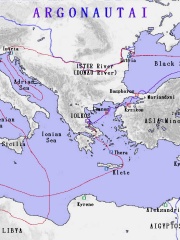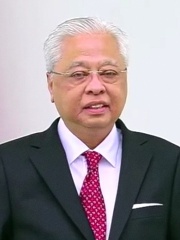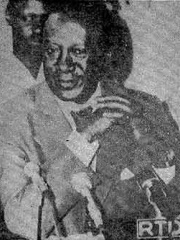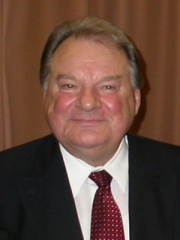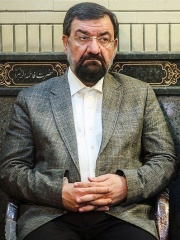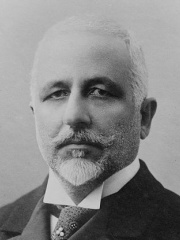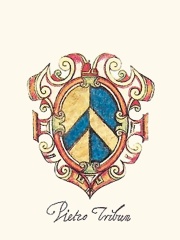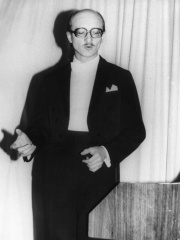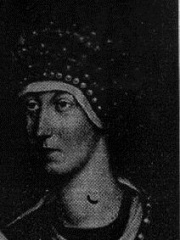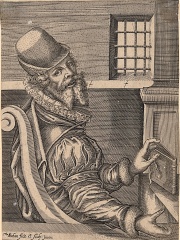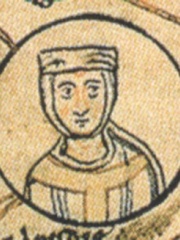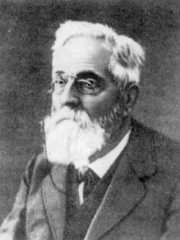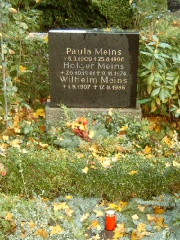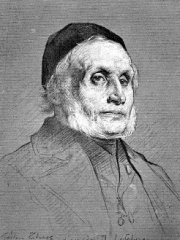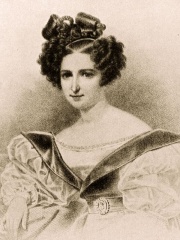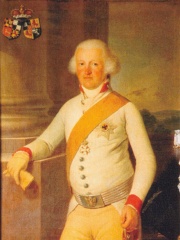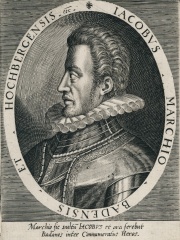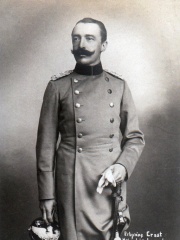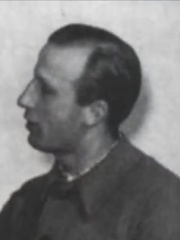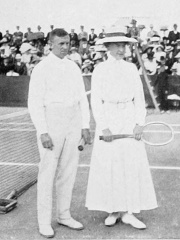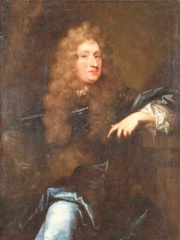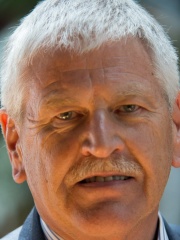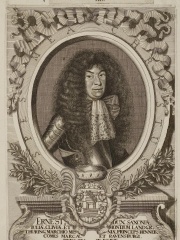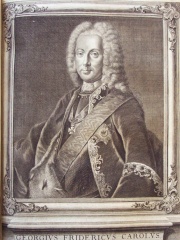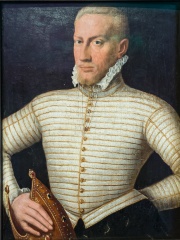POLITICIAN
Günter Verheugen
1944 - Today
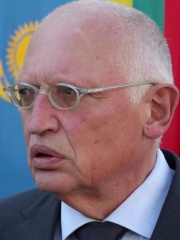
 Günter Verheugen
Günter Verheugen
Günter Verheugen (German pronunciation: [ˈɡʏntɐ fɛɐˈhɔʏɡn̩]; born 28 April 1944) is a German politician who served as European Commissioner for Enlargement from 1999 to 2004, and then as European Commissioner for Enterprise and Industry from 2004 to 2010. He was also one of five vice presidents of the 27-member Barroso Commission (Barroso I). After his retirement, he is now honorary Professor at the European University Viadrina in Frankfurt (Oder). Read more on Wikipedia
His biography is available in 27 different languages on Wikipedia. Günter Verheugen is the 12,751st most popular politician (down from 11,461st in 2024), the 3,845th most popular biography from Germany (down from 3,443rd in 2019) and the 1,079th most popular German Politician.
Memorability Metrics
Page views of Günter Verheugen by language
Among POLITICIANS
Among politicians, Günter Verheugen ranks 12,751 out of 19,576. Before him are Euphemus, Ismail Sabri Yaakob, Anaxidamus, Haidar Abu Bakr al-Attas, Yusuf Lule, and Dmytro Kuleba. After him are Hennadiy Udovenko, Mohsen Rezaee, Tommaso Tittoni, Antonio Di Pietro, Pietro Tribuno, and Elisabeth of Sicily, Duchess of Bavaria.
Most Popular Politicians in Wikipedia
Go to all RankingsEuphemus
HPI: 58.53
Rank: 12,751
Ismail Sabri Yaakob
1960 - Present
HPI: 58.53
Rank: 12,752
Anaxidamus
650 BC - Present
HPI: 58.53
Rank: 12,753
Haidar Abu Bakr al-Attas
1939 - Present
HPI: 58.52
Rank: 12,754
Yusuf Lule
1912 - 1985
HPI: 58.52
Rank: 12,755
Dmytro Kuleba
1981 - Present
HPI: 58.52
Rank: 12,756
Günter Verheugen
1944 - Present
HPI: 58.52
Rank: 12,757
Hennadiy Udovenko
1931 - 2013
HPI: 58.52
Rank: 12,758
Mohsen Rezaee
1954 - Present
HPI: 58.52
Rank: 12,759
Tommaso Tittoni
1855 - 1931
HPI: 58.52
Rank: 12,760
Antonio Di Pietro
1950 - Present
HPI: 58.52
Rank: 12,761
Pietro Tribuno
900 - 911
HPI: 58.52
Rank: 12,762
Elisabeth of Sicily, Duchess of Bavaria
1310 - 1349
HPI: 58.51
Rank: 12,763
Contemporaries
Among people born in 1944, Günter Verheugen ranks 390. Before him are Sulochana Gadgil, Neil Young, Raewyn Connell, Alexei Lubimov, Berta Ambrož, and Swoosie Kurtz. After him are José Wilker, Ján Čarnogurský, Patti LaBelle, José Eulogio Gárate, Dennis Franz, and Haim Saban.
Others Born in 1944
Go to all RankingsSulochana Gadgil
MATHEMATICIAN
1944 - 2025
HPI: 58.71
Rank: 384
Neil Young
SOCCER PLAYER
1944 - 2011
HPI: 58.69
Rank: 385
Raewyn Connell
SOCIOLOGIST
1944 - Present
HPI: 58.65
Rank: 386
Alexei Lubimov
MUSICIAN
1944 - Present
HPI: 58.64
Rank: 387
Berta Ambrož
SINGER
1944 - 2003
HPI: 58.60
Rank: 388
Swoosie Kurtz
ACTOR
1944 - Present
HPI: 58.60
Rank: 389
Günter Verheugen
POLITICIAN
1944 - Present
HPI: 58.52
Rank: 390
José Wilker
ACTOR
1944 - 2014
HPI: 58.52
Rank: 391
Ján Čarnogurský
POLITICIAN
1944 - Present
HPI: 58.51
Rank: 392
Patti LaBelle
SINGER
1944 - Present
HPI: 58.49
Rank: 393
José Eulogio Gárate
SOCCER PLAYER
1944 - Present
HPI: 58.47
Rank: 394
Dennis Franz
ACTOR
1944 - Present
HPI: 58.45
Rank: 395
Haim Saban
BUSINESSPERSON
1944 - Present
HPI: 58.44
Rank: 396
In Germany
Among people born in Germany, Günter Verheugen ranks 3,847 out of 7,253. Before him are Margaret of Bavaria, Electress Palatine (1456), Willy Busch (1907), Thomas Gottschalk (1950), Roy Black (1943), Melchior Hoffman (1495), and Matilda of France (943). After him are Anton Koberger (1440), Heinrich Martin Weber (1842), Holger Meins (1941), Bernd Lucke (1962), Joseph-Nicolas Robert-Fleury (1797), and Wilhelmine Schröder-Devrient (1804).
Others born in Germany
Go to all RankingsMargaret of Bavaria, Electress Palatine
NOBLEMAN
1456 - 1501
HPI: 58.54
Rank: 3,841
Willy Busch
SOCCER PLAYER
1907 - 1982
HPI: 58.53
Rank: 3,842
Thomas Gottschalk
PRESENTER
1950 - Present
HPI: 58.53
Rank: 3,843
Roy Black
SINGER
1943 - 1991
HPI: 58.53
Rank: 3,844
Melchior Hoffman
RELIGIOUS FIGURE
1495 - 1543
HPI: 58.53
Rank: 3,845
Matilda of France
COMPANION
943 - 992
HPI: 58.52
Rank: 3,846
Günter Verheugen
POLITICIAN
1944 - Present
HPI: 58.52
Rank: 3,847
Anton Koberger
DESIGNER
1440 - 1513
HPI: 58.51
Rank: 3,848
Heinrich Martin Weber
MATHEMATICIAN
1842 - 1913
HPI: 58.50
Rank: 3,849
Holger Meins
ACTOR
1941 - 1974
HPI: 58.50
Rank: 3,850
Bernd Lucke
POLITICIAN
1962 - Present
HPI: 58.49
Rank: 3,851
Joseph-Nicolas Robert-Fleury
PAINTER
1797 - 1890
HPI: 58.49
Rank: 3,852
Wilhelmine Schröder-Devrient
SINGER
1804 - 1860
HPI: 58.49
Rank: 3,853
Among POLITICIANS In Germany
Among politicians born in Germany, Günter Verheugen ranks 1,079. Before him are Anton Aloys, Prince of Hohenzollern-Sigmaringen (1762), James III, Margrave of Baden-Hachberg (1562), Ernst II, Prince of Hohenlohe-Langenburg (1863), Günther Schwägermann (1915), Dorothea Köring (1880), and Ulrik Frederik Gyldenløve (1638). After him are Bernd Lucke (1962), Karl Arnold (1901), Udo Voigt (1952), Ernest, Duke of Saxe-Hildburghausen (1655), George Frederick Charles, Margrave of Brandenburg-Bayreuth (1688), and Gebhard Truchsess von Waldburg (1547).
Anton Aloys, Prince of Hohenzollern-Sigmaringen
1762 - 1831
HPI: 58.58
Rank: 1,073
James III, Margrave of Baden-Hachberg
1562 - 1590
HPI: 58.58
Rank: 1,074
Ernst II, Prince of Hohenlohe-Langenburg
1863 - 1950
HPI: 58.56
Rank: 1,075
Günther Schwägermann
1915 - Present
HPI: 58.56
Rank: 1,076
Dorothea Köring
1880 - 1945
HPI: 58.55
Rank: 1,077
Ulrik Frederik Gyldenløve
1638 - 1704
HPI: 58.54
Rank: 1,078
Günter Verheugen
1944 - Present
HPI: 58.52
Rank: 1,079
Bernd Lucke
1962 - Present
HPI: 58.49
Rank: 1,080
Karl Arnold
1901 - 1958
HPI: 58.44
Rank: 1,081
Udo Voigt
1952 - 2025
HPI: 58.43
Rank: 1,082
Ernest, Duke of Saxe-Hildburghausen
1655 - 1715
HPI: 58.42
Rank: 1,083
George Frederick Charles, Margrave of Brandenburg-Bayreuth
1688 - 1735
HPI: 58.39
Rank: 1,084
Gebhard Truchsess von Waldburg
1547 - 1601
HPI: 58.36
Rank: 1,085
